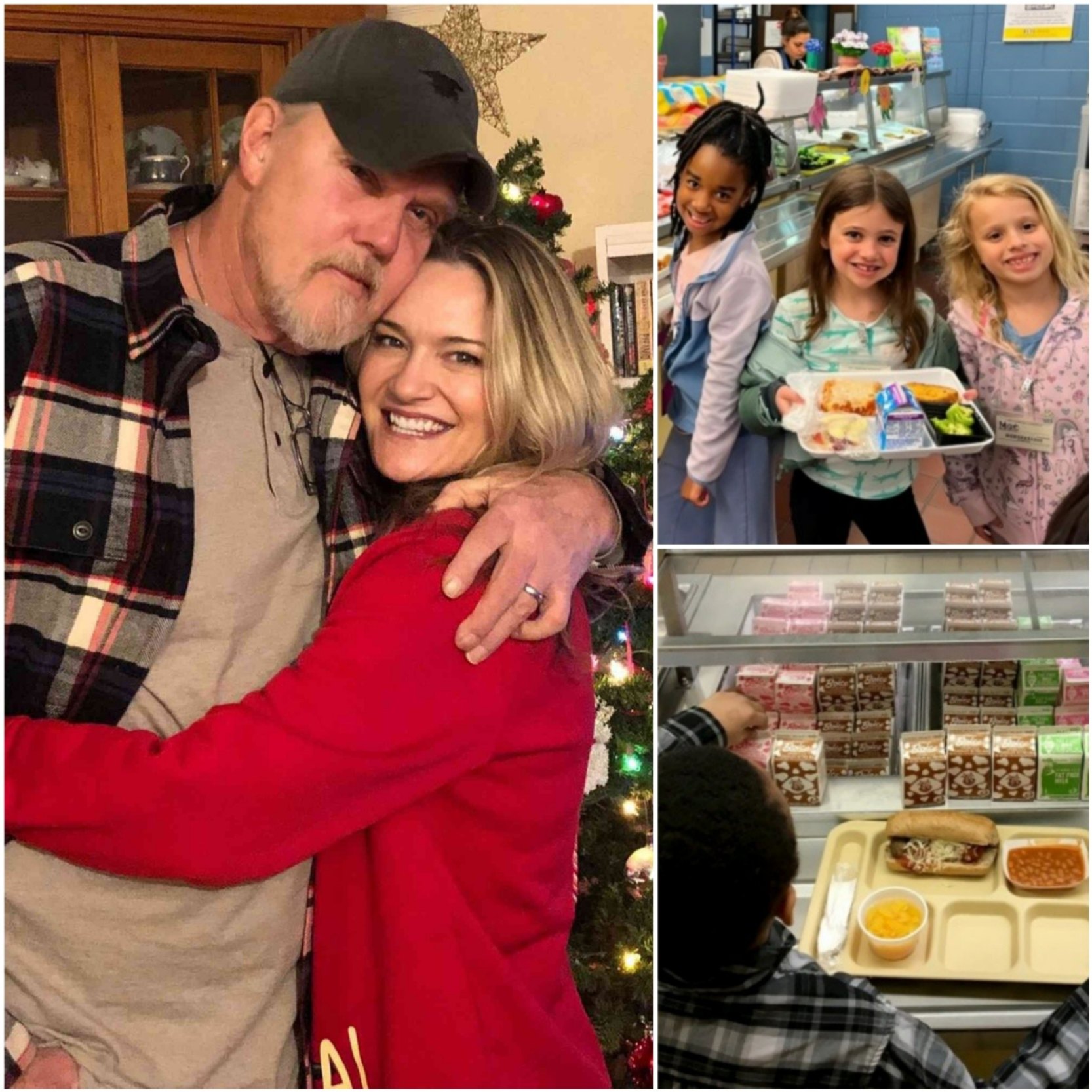Trace Adkins, Viral Claims, and the Question of School Lunch Debt: What Really Happened?
In recent days, social media has erupted with posts celebrating what appeared to be a heartwarming act of generosity: country music star Trace Adkins and his wife allegedly “erased more than $667,000 in unpaid school lunch debt” across 103 schools in the United States. Many viral posts framed the claim as a triumphant moment of compassion, quoting Adkins as saying the act was “a victory greater than any award” and insisting that no child should ever have to learn on an empty stomach.
The story spread rapidly, generating hundreds of thousands of shares and comments praising the gesture. For many readers, the claim resonated deeply with ongoing national discussions about childhood hunger, the rising cost of living, and the growing school lunch debt crisis affecting districts across the country. Social media users responded enthusiastically, expressing admiration for what they saw as a generous use of celebrity influence to address a real and painful issue.
However, despite the emotional power of the story, there is no credible evidence that Trace Adkins or his wife made such a donation, nor has any reputable news outlet, charity organization, or school district confirmed the act. In fact, fact-checking organizations have identified the narrative as part of a broader pattern of viral posts that falsely attribute large philanthropic actions to public figures who, in reality, had no involvement in the alleged events. These fabricated posts typically use similar language, dramatic numbers, and emotionally charged statements to encourage engagement.

A Pattern of Viral Philanthropy Hoaxes
The Adkins story did not emerge in isolation. Over the past year, numerous social media posts have used the same template to promote unverified or entirely invented claims about celebrities paying off school lunch debt, medical bills, or other forms of financial hardship. Fact-checking groups such as Lead Stories and Snopes have repeatedly warned that these posts are often created to attract likes, shares, and followers — a phenomenon known as engagement bait.
The formula is simple: pair a well-known public figure with an uplifting act of generosity, add an impressive dollar amount, and finish with an emotionally resonant quote. The posts spread easily because they make people feel good, reinforce positive beliefs about celebrity kindness, and address genuine social concerns. The downside is that these narratives distort public understanding, mislead readers, and occasionally redirect attention away from legitimate charitable efforts that are truly making a difference.

Why the Story Spread So Quickly
The idea of a celebrity wiping out school lunch debt taps into a powerful cultural conversation. Across the United States, school districts have accumulated millions of dollars in unpaid lunch balances. Many families struggle to keep up with escalating food costs, while schools — often underfunded themselves — rely on debt collection practices that can create additional stress for vulnerable households.
Stories of individuals or charities stepping in to cover these debts often go viral because they speak to a moral intuition: children should never be punished or shamed for circumstances beyond their control. Genuine instances of philanthropic intervention have been widely celebrated. In recent years, local businesses, community groups, and private donors have successfully paid off lunch debt for entire districts, drawing admiration and prompting calls for systemic reform.
Against this backdrop of real need and real generosity, a story involving a beloved country music icon like Trace Adkins feels plausible — even inspiring. Yet without verification, such claims can cause confusion and contribute to misinformation.
No Confirmation From Adkins or His Representatives
As of this writing, neither Trace Adkins nor his representatives have issued any statement confirming the reported donation. No press releases, interviews, or official charitable reports corroborate the claim, and no schools or districts have acknowledged receiving such funds. Charity databases and nonprofit partners typically associated with large-scale debt relief also show no record of a contribution matching the description circulating online.
While Adkins is known for supporting various veterans’ causes, disaster relief efforts, and community organizations, the school lunch debt claim remains unsupported.
The Real Issue: America’s School Lunch Debt Crisis
Although the viral story is untrue, the underlying issue it gestures toward is very real. According to national education reports, school lunch debt in the United States exceeds $260 million annually, affecting hundreds of thousands of students across diverse socioeconomic backgrounds. Many districts lack the resources to absorb these costs, leading them to impose restrictions on students with overdue balances or to seek repayment from struggling families.
Advocates argue that universal free school meals would eliminate the problem entirely, improve nutrition, and reduce stigma. Several states — including California, Colorado, Minnesota, and Maine — have already implemented statewide free-meal programs, while others continue to debate the issue.
Why Verifying Such Claims Matters
Acts of generosity deserve recognition — but only when they actually occur. When false stories circulate, they obscure the work of real donors, mislead the public, and create confusion about the state of charitable efforts. Moreover, they risk eroding trust in news sources and social media platforms at a time when factual accuracy is more important than ever.
In the case of the Adkins story, the truth is simpler than the headline: a touching claim went viral, but the facts do not support it.
A Hope for Real Change
Whether or not a celebrity steps in, the national conversation about school lunch debt continues to grow. The attention generated by stories — even inaccurate ones — reflects deep public concern for children’s wellbeing. As policymakers debate systemic solutions and communities rally around their schools, the hope remains that the issue can be addressed in meaningful and lasting ways.
In the meantime, readers are encouraged to verify charitable claims before sharing them and to support legitimate organizations working to combat childhood hunger.